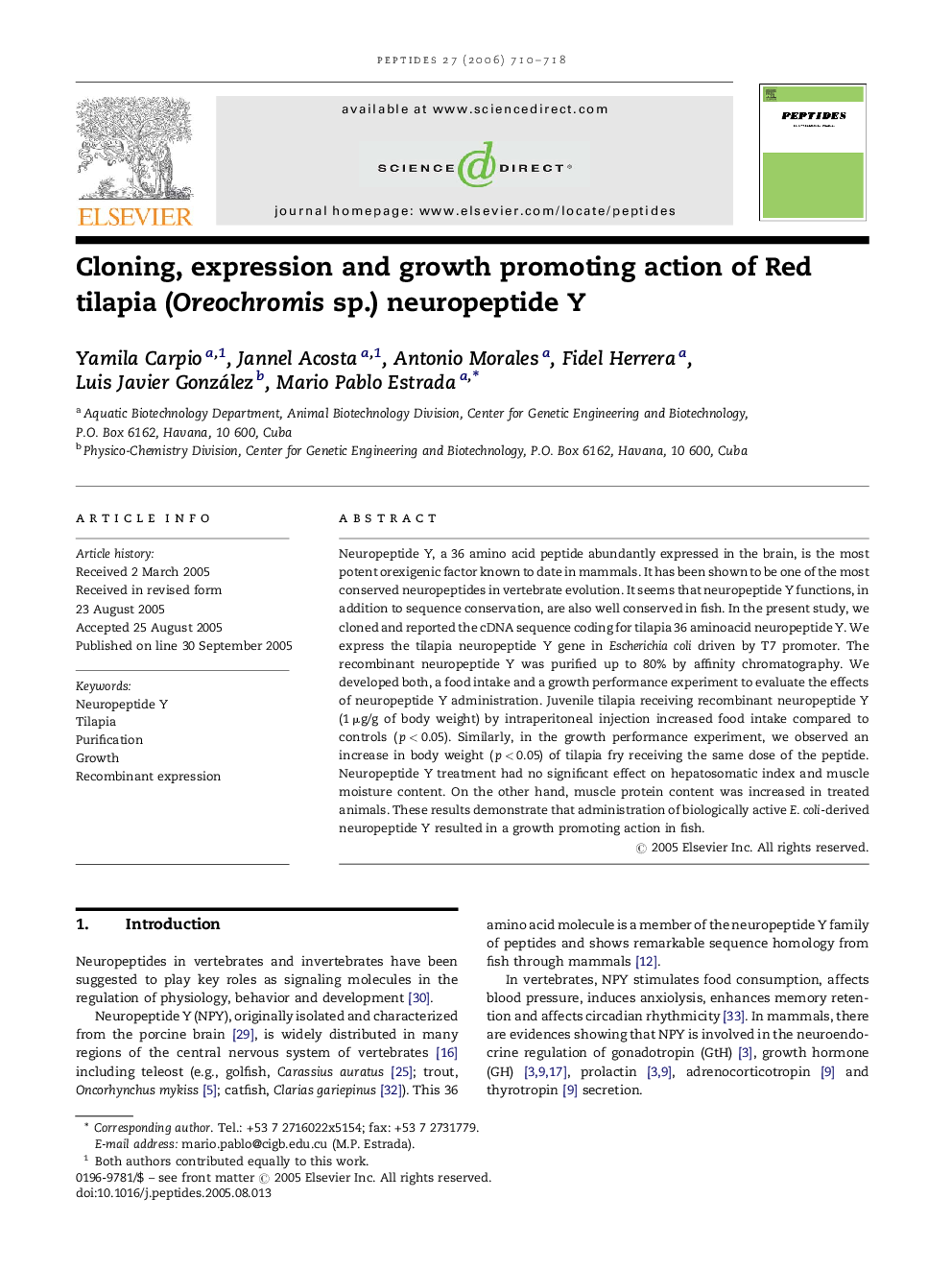| Article ID | Journal | Published Year | Pages | File Type |
|---|---|---|---|---|
| 2008328 | Peptides | 2006 | 9 Pages |
Neuropeptide Y, a 36 amino acid peptide abundantly expressed in the brain, is the most potent orexigenic factor known to date in mammals. It has been shown to be one of the most conserved neuropeptides in vertebrate evolution. It seems that neuropeptide Y functions, in addition to sequence conservation, are also well conserved in fish. In the present study, we cloned and reported the cDNA sequence coding for tilapia 36 aminoacid neuropeptide Y. We express the tilapia neuropeptide Y gene in Escherichia coli driven by T7 promoter. The recombinant neuropeptide Y was purified up to 80% by affinity chromatography. We developed both, a food intake and a growth performance experiment to evaluate the effects of neuropeptide Y administration. Juvenile tilapia receiving recombinant neuropeptide Y (1 μg/g of body weight) by intraperitoneal injection increased food intake compared to controls (p < 0.05). Similarly, in the growth performance experiment, we observed an increase in body weight (p < 0.05) of tilapia fry receiving the same dose of the peptide. Neuropeptide Y treatment had no significant effect on hepatosomatic index and muscle moisture content. On the other hand, muscle protein content was increased in treated animals. These results demonstrate that administration of biologically active E. coli-derived neuropeptide Y resulted in a growth promoting action in fish.
